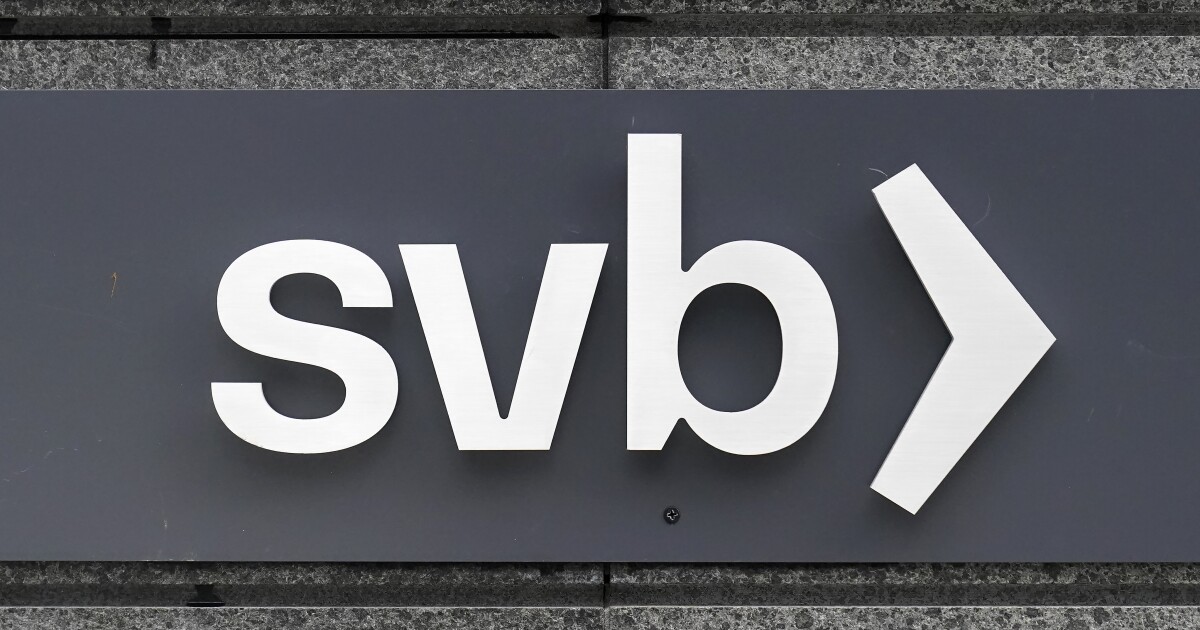

The House is set to hold its first hearing on the collapse of Silicon Valley Bank, marking a significant step toward addressing the financial crisis while lawmakers remain split on how to avoid similar incidents in the future.
The House Committee on Financial Services will hold a hearing on March 29 to question federal financial regulators on their response to the bank collapse, lawmakers announced on Friday. The hearing is expected to be the first of several as lawmakers seek to determine the cause of the banking failures and consider measures to prevent future shortcomings.
SVB COLLAPSE: SHERROD BROWN PRESSES FEDERAL GOVERNMENT TO STRENGTHEN BANKING REGULATIONS
“We are working around the clock to deliver answers to the American people in order to protect depositors, promote the safety and soundness of America’s banks, and strengthen our financial system,” Reps. Maxine Waters (D-CA) and Patrick McHenry (R-NC), the top two lawmakers on the committee, wrote in a joint statement. “We will conduct this hearing without fear or favor to get the answers the American people deserve.”
The hearing will feature two witnesses, including Martin Gruenberg, chairman of the board of directors at the Federal Deposit Insurance Corporation, and Michael Barr, the vice chairman for supervision of the board of supervisors at the Federal Reserve. More witnesses could be called to testify before the hearing takes place.
Lawmakers have already begun pressing for answers on the banking failures, with senators on the Finance Committee questioning Treasury Secretary Janet Yellen on the matter during a separate hearing on her department’s proposed budget for 2024.
Additionally, Sen. Sherrod Brown (D-OH) sent a letter to the Treasury, the Fed, and the FDIC on Thursday, urging the government agencies to conduct a comprehensive review of the bank’s collapse that led to a strain on the nation’s financial system. As part of that request, Brown pressed the agency to implement stronger banking regulations “to prevent failures and mitigate contagion.”
The hearing comes as lawmakers on both sides of the aisle seek to address the collapse of SVB and Signature Bank, which prompted a frenzy and strain on the national stock market late last week.
Sen. Elizabeth Warren (D-MA) introduced legislation on Tuesday that would abolish Title IV of the Economic Growth, Regulatory Relief, and Consumer Protection Act and restore certain provisions used to overhaul the U.S. financial system in the aftermath of the 2008 recession.
Warren’s legislation specifically targets a Title IV provision that raised the asset threshold to $250 billion for banks to be regulated as “systemically important.” That rollback, Warren argued, led to the deregulation and subsequent collapse of SVB and Signature Bank, prompting the frenzy and strain on the stock market.
The bill has ignited some disagreement among Senate Democrats as the party members can’t agree on whether they want to repeal the 2018 legislation altogether or pass stronger regulations. Republicans, on the other hand, have rejected the idea.
Senate Minority Whip John Thune (R-SD) dismissed any talks of legislation as being “premature,” especially before lawmakers understand the causes behind the collapse.
CLICK HERE TO READ MORE FROM THE WASHINGTON EXAMINER
Both SVB and Signature Bank collapsed late last week, prompting major federal intervention to backstop uninsured deposits in a bid to halt panic.
The collapse came after SVB announced on March 8 that it had sold $21 billion in bonds, cementing $1.8 billion in previously unrealized losses. That announcement sparked a frenzy among venture capital firms, which reportedly began advising clients to pull their money from Silicon Valley Bank — causing its stock to be thrust into a free fall.





